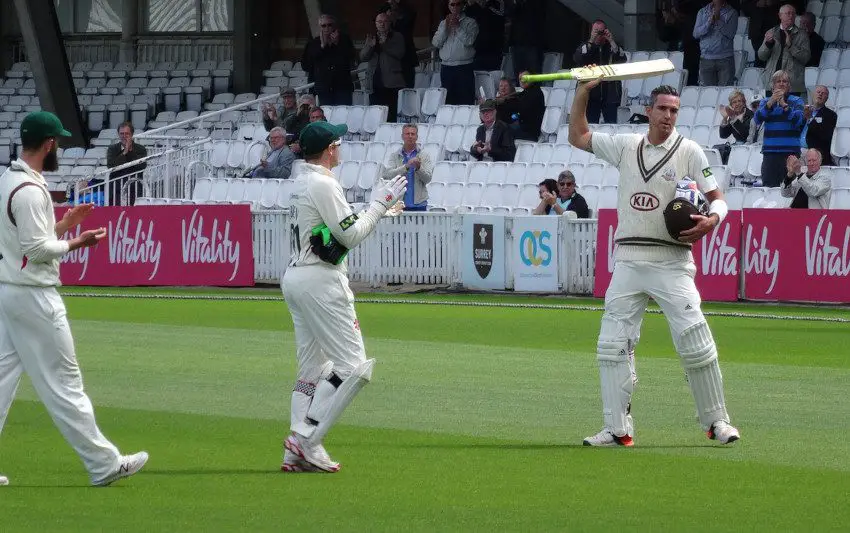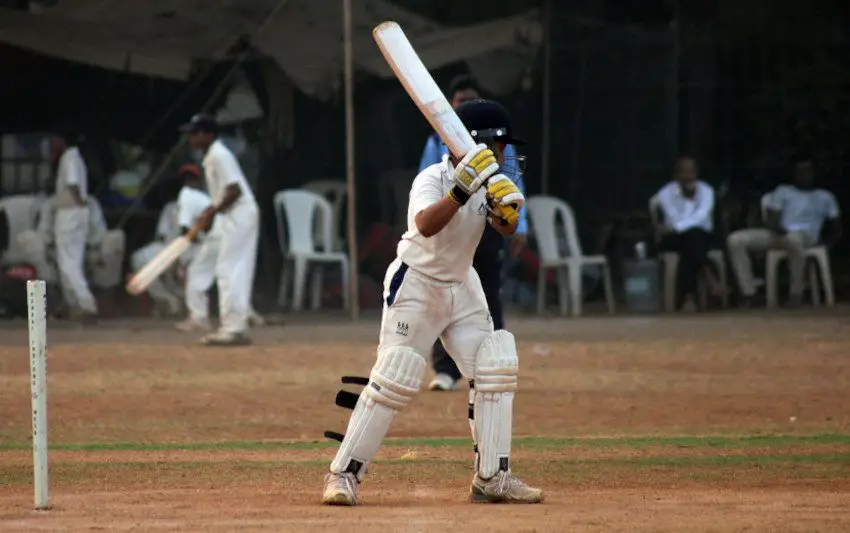Table of Contents
Some exceptional cricketers have come out of New Zealand and, in this article, I’m going to be taking a closer look at the country’s best batters.
Best New Zealand Batsmen
Martin Crowe
There isn’t a particular order to this list, but many would place the great Martin Crowe at the very top. He was one of the best strokeplayers that his country had ever produced and he began to set new standards for New Zealand batsmen.
While he’s since been overtaken, Crowe finished his career as the leading run scorer for the Black Caps in test matches. He made 5,444 runs in the red ball format with an exceptional average of 45.36. Added to that list is a further 4704 runs in ODIs.
Crowe also came agonisingly close to becoming the first New Zealand batsman to make a triple hundred in test cricket. His best international score of 299 came against Sri Lanka in 1991.
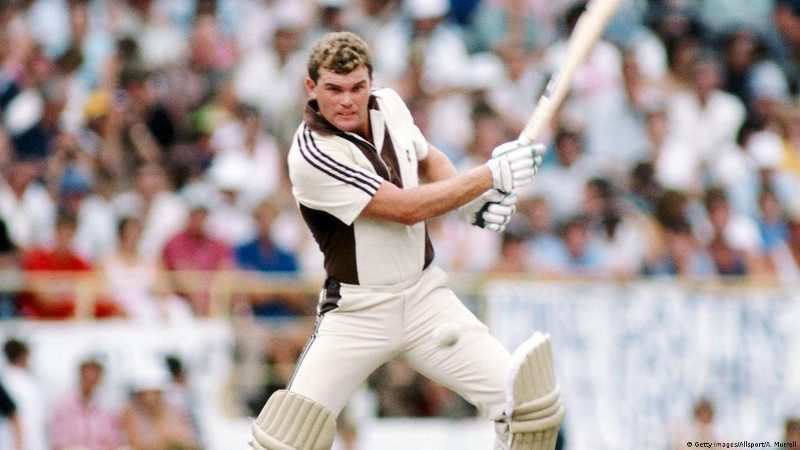
Ross Taylor
When Ross Taylor eventually retired from international cricket, he had made the most test runs by any batsman from New Zealand. His final total of 7,683 in the red ball game will almost certainly be overtaken by Kane Williamson, but he made important scores for the Kiwis over many years.
He was a classy batter who could ‘go through the gears’. This means that he could accumulate patient runs, or he could blast away in the limited overs formats if the situation demanded. Along with that impressive run total in tests. Ross Taylor also scored over 10,500 runs in the two limited overs international formats. He made no fewer than 40 centuries, with a top score of 290.

Kane Williamson
There are some impressive batters in the current New Zealand test side, but the best of these is undoubtedly Kane Williamson. At the time of writing, he is second only to Ross Taylor in New Zealand’s list of leading run scorers and, by the time you read this, he’ll probably be at the top.
Williamson is another player who can be effective in all forms of the game. He’s not a power hitter, but is exceptionally good at finding the gaps in limited overs cricket. At the start of 2023, he had already scored more than 14,500 international runs across three formats.
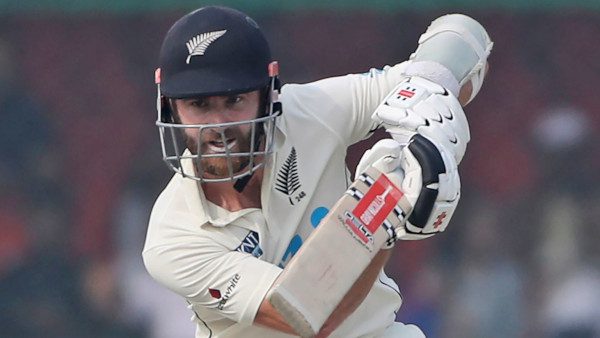
Brendon McCullum
Martin Crowe may have fallen just short, but Brendon McCullum converted to become the first New Zealand batter to score a triple century in tests. He will largely be remembered as a powerful batsman who could score quickly in any situation but he was also one of New Zealand’s best captains.
McCullum’s top score of 302 against India at Wellington remains as the highest test score by a New Zealand batter. He scored heavily in all three of the international formats and has been tough to replace in all of the Kiwis’ national sides.
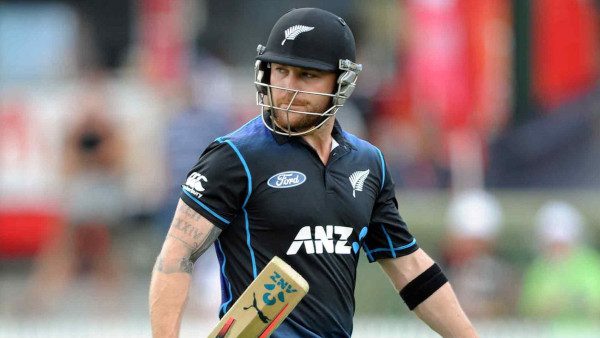
Daniel Vettori
This will be an inclusion that sparks some debate, but Daniel Vettori was actually a very underrated batsman. While it’s true that he will mainly be remembered for his left arm spin bowling, he played some important innings for the Kiwis, most notably in test cricket.
If you’re still not sure, check out Daniel Vettori’s statistics and you’ll note that he scored no fewer than six test centuries with a highest score of 140. Across the three formats, he made 6,989 runs in international colours. I’m not saying that he would have got into the side purely as a batsman, but he was definitely an underrated talent in this part of the game.
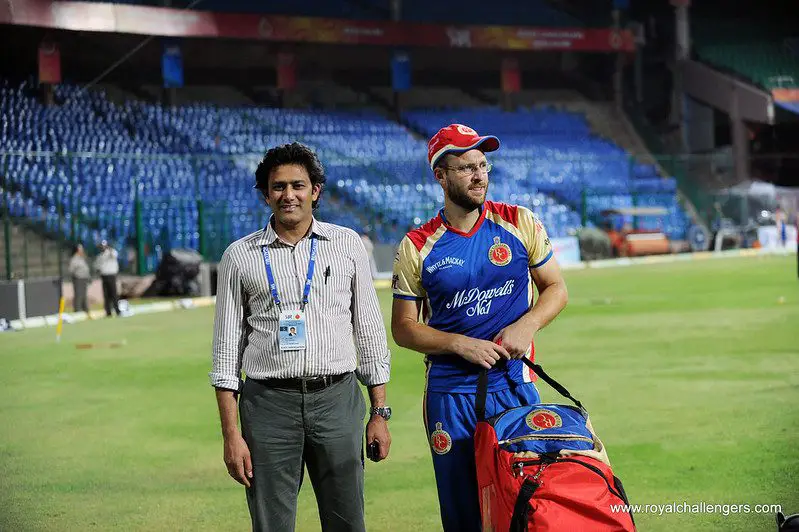
Stephen Fleming
Stephen Fleming was the first New Zealand batsman to pass 7,000 test runs, bringing up that particular milestone in his final test series in 2008. He was a stylish left hander who worked hard on his batting and that produced definite rewards.
Fleming eventually finished with 7,172 test runs and a healthy average above 40. There was a feeling that he should have made more and his total of nine test centuries isn’t a worthy return.
In retirement, many look back on Stephen Fleming as a great captain, but we shouldn’t forget that he was one of the best Kiwi batsmen of any era.
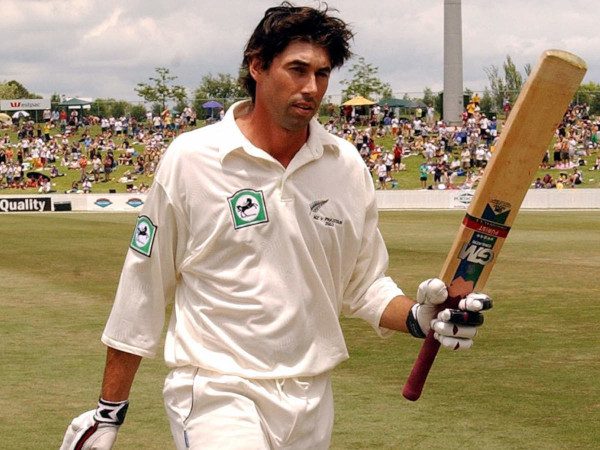
Nathan Astle
More than twenty years after the event, Nathan Astle still holds the record for the fastest double century in test match cricket. In an incredible game against England at Christchurch in 2002, he brought up the 200 mark from just 153 deliveries.
That milestone may eventually be passed, but Astle will always remain as one of the best New Zealand batters of all time. His average of 37.02 from 137 innings may not actually prove that point, but he made some important contributions when it mattered.
When he did get a start, Nathan Astle tended to go big. He made 11 test centuries, along with a further 16 tons in ODIs.
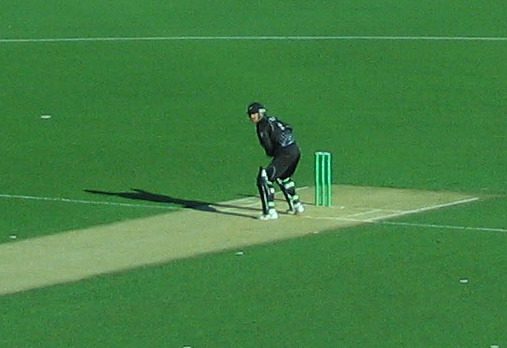
Glenn Turner
At a time when New Zealand weren’t one of the top sides in world cricket, Glenn Turner was one of a handful of players to truly stand out. He only played 41 test matches between 1969 and 1983 and, while we know that fewer games were staged in those times, that’s still a surprising number.
Turner’s figures certainly back up the suggestion that he was a New Zealand great. He made 2991 test runs, plus a further 1598 in One Day Internationals. He made ten centuries with a top score of 259.
Away from the test arena, Glenn Turner is one of a select band of batsmen to have scored more than one hundred first class centuries. He passed three figures on 103 occasions and his best was an undefeated 311.
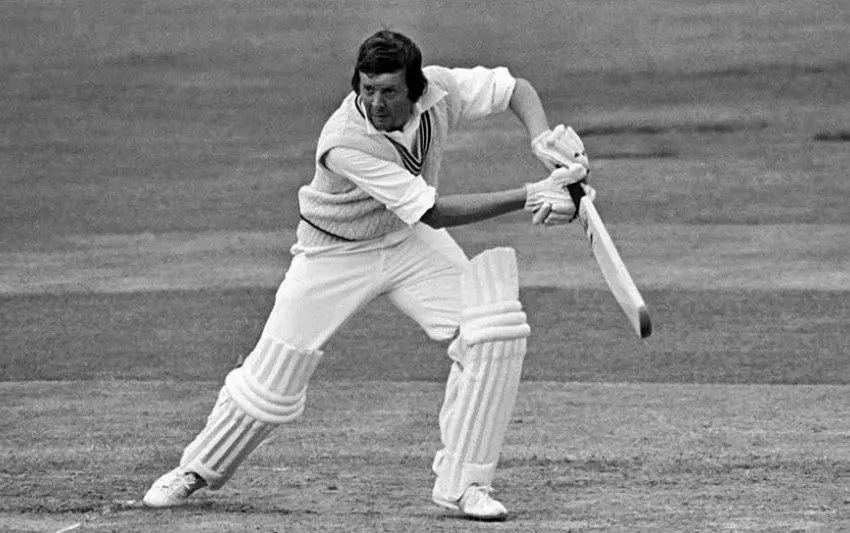
Bert Sutcliffe
Bert Sutcliffe is widely regarded as one of New Zealand’s first great batsmen. At a time when there were fewer tests spread among a smaller set of cricket playing nations, he played in 42 international matches between 1947 and 1965.
At one point, he held the record for New Zealand’s highest ever individual test score, after making his own personal best of 230 against India in 1955/56. It’s also worth noting that he hit a highest first class score of 385, which was the best by a left hander until Brian Lara’s 501.
In total, Bert Sutcliffe made 2,727 test runs at an average of 40.10 with five centuries.

John Wright
John Wright was another New Zealand batsman to set a milestone. After making his debut against England in 1978, he would go on to become the first Kiwi to pass 5,000 runs in tests. After eventually returning following his last match against Australia in 1993, Wright had made 5,334 runs in international red ball cricket, plus a further 3,891 in ODIs.
A left hander, Wright was an attacking player and this approach could cause his downfall at times. His final test average of 37.82 may have left room for improvement, but he made runs at important times in what was a relatively weak Kiwi side.

Chris Cairns
Chris Cairns will go down in history as one of the best all-rounders that New Zealand ever had, but this is one player who definitely merited inclusion for his batting alone. Cairns was known as an attacking batter but, while he was a success in limited overs cricket, that style produced plenty of rewards in test matches too.
At one point, Chris Cairns held the record for the most maximums in test cricket. His record of 87 sixes remains an impressive return from his 62 matches. In total, Cairns made 8273 runs from the three international formats, with nine centuries and a highest score of 158.
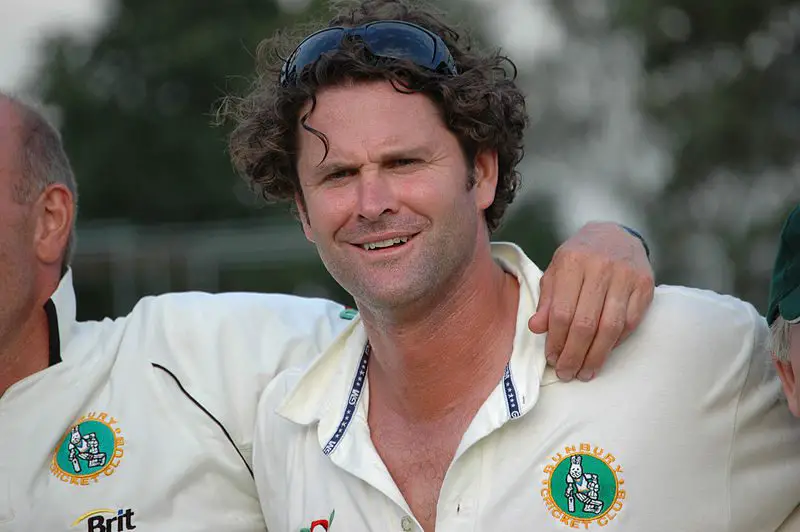
Mark Richardson
Mark Richardson enjoyed a joke at his own expense, but there was nothing funny about his international batting. He could be slow at times, just like on those occasions when he would challenge the slowest member of the opposition to a race at the end of a series.
Richardson started primarily as a bowler, but he transformed his game to become a stubborn opening bat. His patient accumulation produced 2776 runs in just 65 test innings with an impressive average of 44.77. He also played in four One Day Internationals, but that wasn’t really his game.

Stewie Dempster
Not many of us will be familiar with the name of Stewie Dempster but he is widely regarded as New Zealand’s first great batsman. He played in the Kiwis’ first ever test match, against New Zealand in 1930, but he made just 36 runs from two innings in a low scoring encounter.
Things improved from there and Dempster eventually made 723 runs from 15 test innings with two centuries and an exceptional test average of 65.72. His brief but exceptional test career ended in 1933 when he moved to England.

Martin Donnelly
Martin Donnelly was another of New Zealand’s early greats. His career was also brief, featuring in just seven test matches, but the big highlight came when he made 206 against England at Lord’s in 1949.
It was the first double century by a New Zealand batsman and the record stood for some time. Donnelly retired with 582 test runs and that top score helped him to an excellent batting average of 52.90. His statistics may have been inflated by that double ton but his 23 hundreds in just 131 first class matches underline Martin Donnelly’s talent.
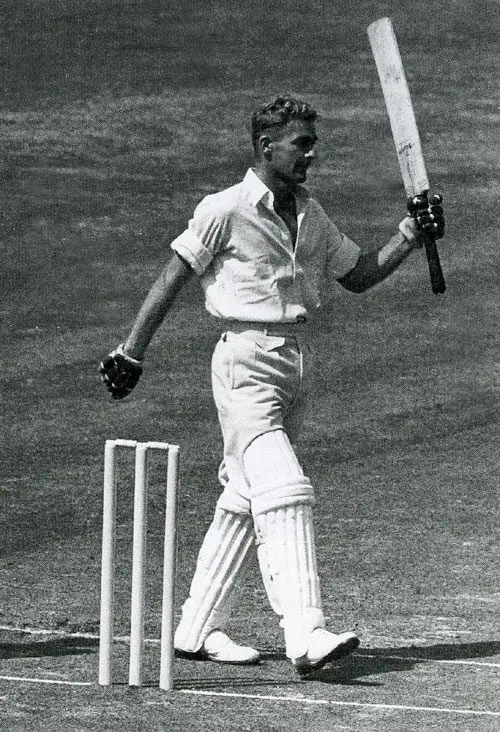
Andrew Jones
He wasn’t the most elegant of batsmen, but Andrew Jones was certainly effective. He was something of a late developer and didn’t win his first cap for New Zealand until the age of 28.
Jones quickly made up for lost time and would become one of the most productive batters for New Zealand. He made over 5,500 runs across tests and One Day Internationals with seven centuries and a top score of 186. That effort of 186 came at the other end of the wicket as Martin Crowe made what was New Zealand’s highest test score at the time of 299.
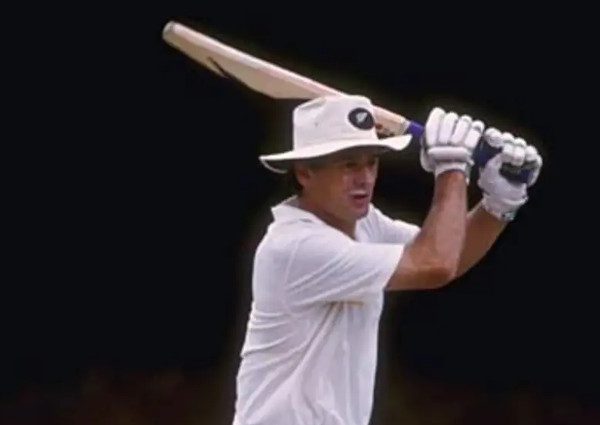
Final Thoughts
There are some truly exceptional players on this list and many would have slotted into any team in world cricket when they were at the height of their powers. I can remember watching New Zealand from their 1978 tour of England onwards and some of these names brought back great memories.
Kane Williamson is still playing internationally at the time of writing, but will any of his current team mates break through onto this list? Daryl Mitchell and Tom Latham have performed well with the bat at times, while it could be argued that Martin Guptill might have made the cut as a limited overs specialist.
As always, these things are open to debate, so feel free to have a say.

